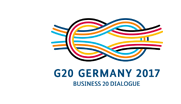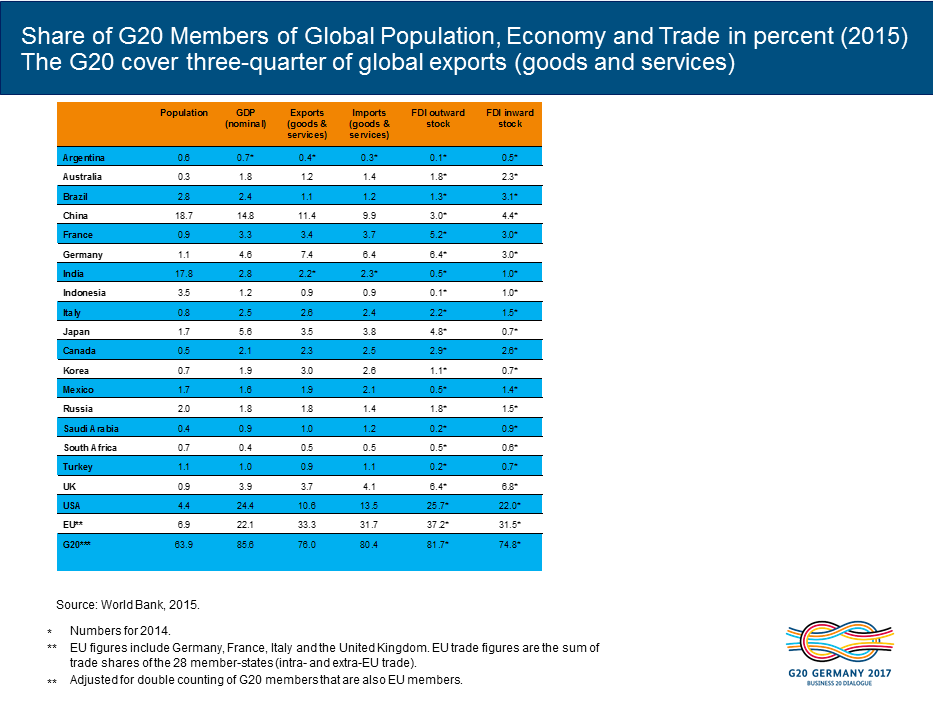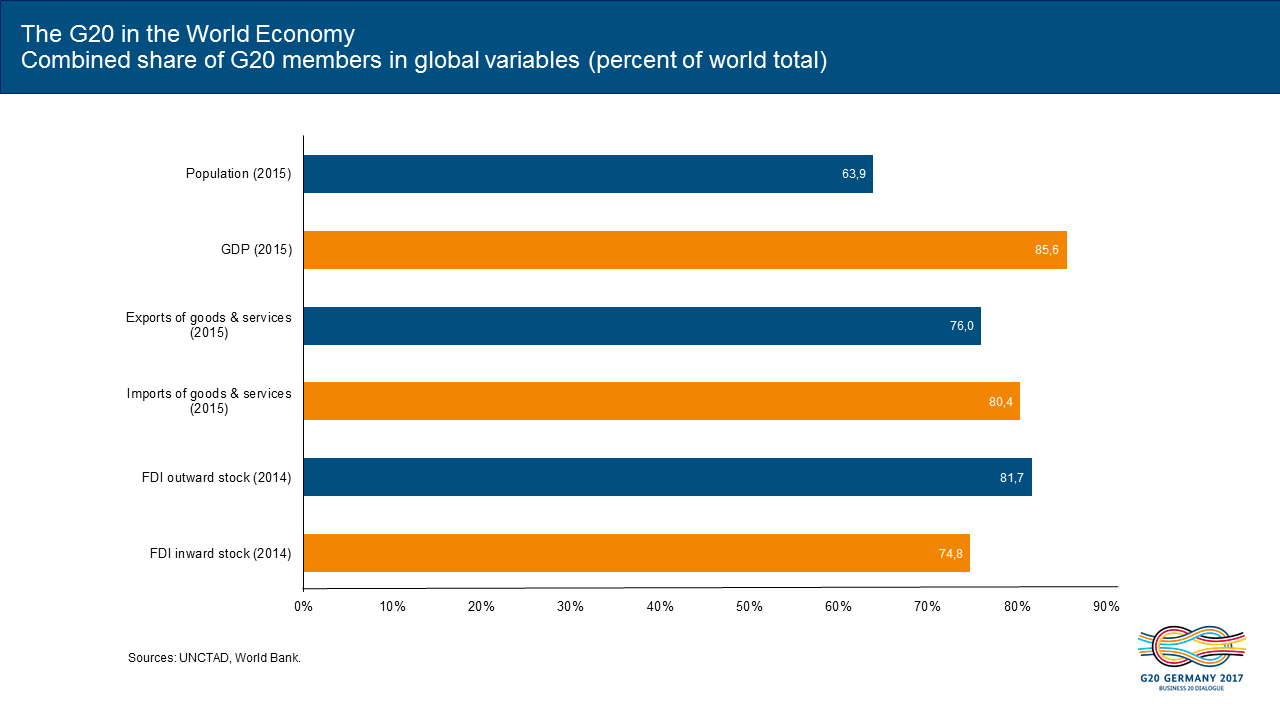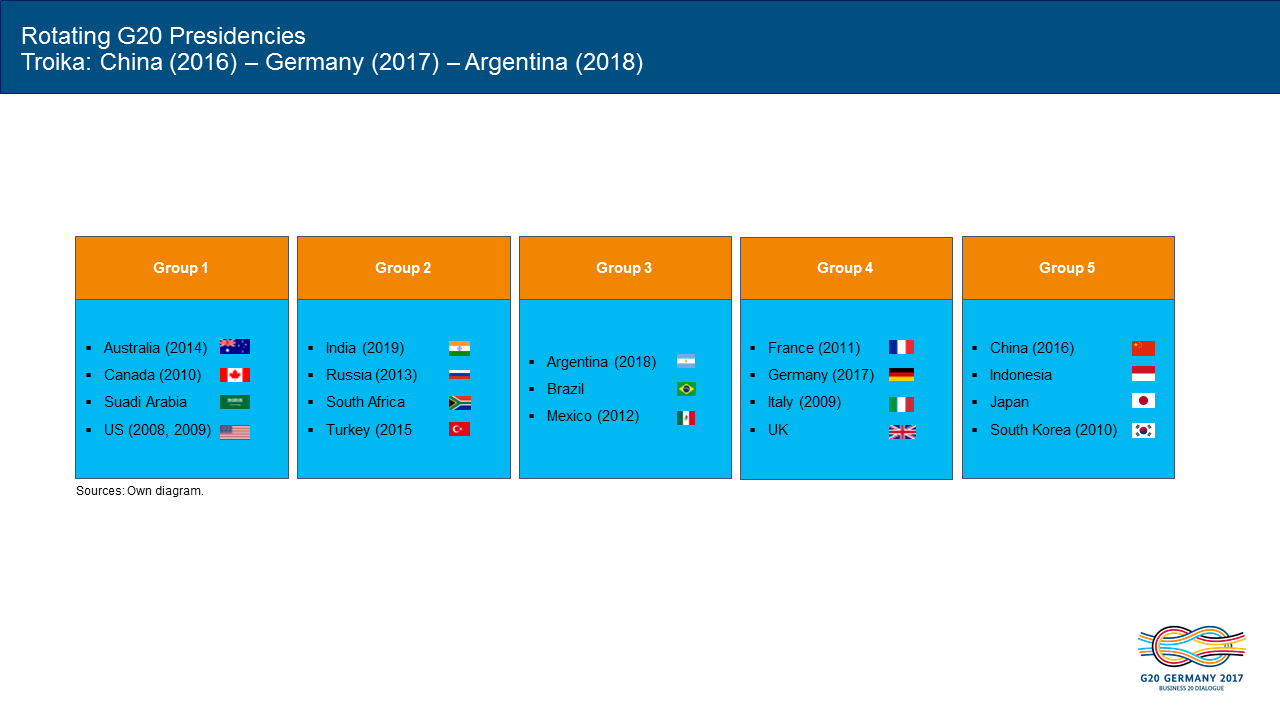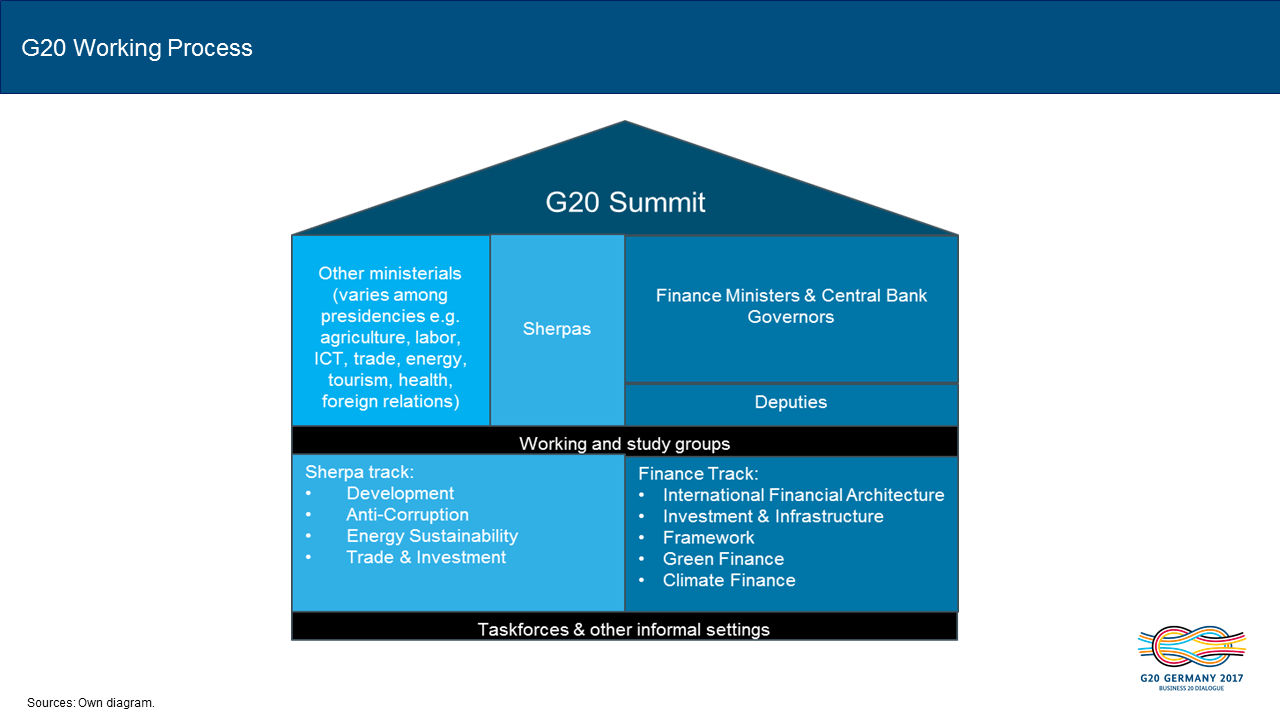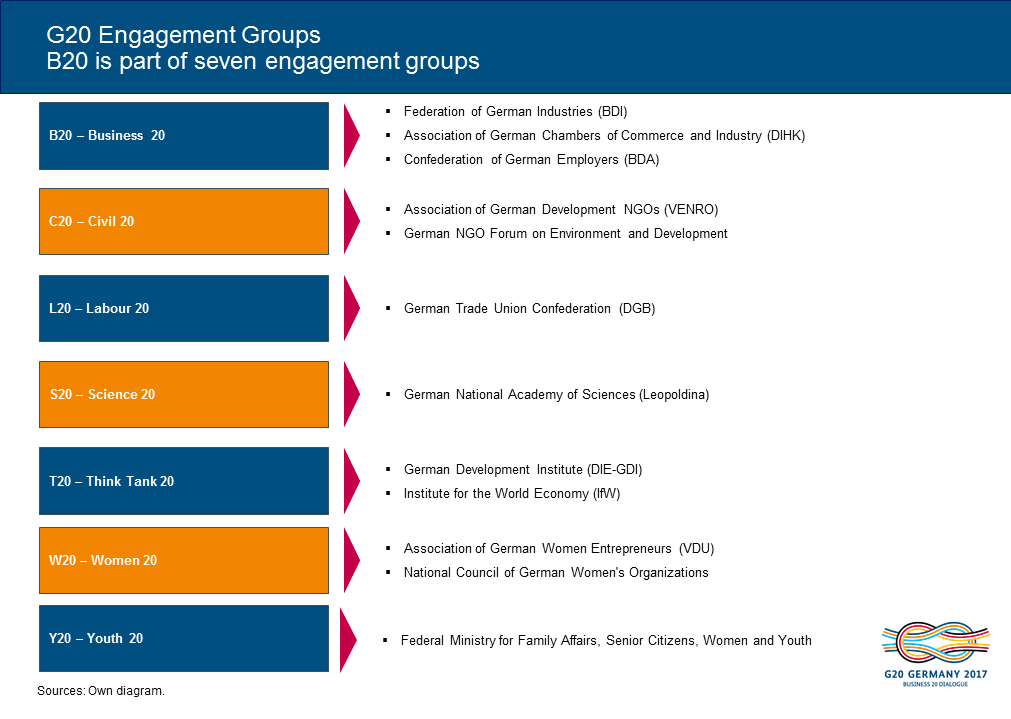About the G20
The G20 is the premier forum for international economic cooperation and increasingly the central forum for all questions of global governance. It responds to the insight that national action alone falls short in an increasingly networked world.
The G20 began in 1999 as a meeting of Finance Ministers and Central Bank Governors in the aftermath of the financial crises in Asia, Latin America, and Asia. The initial objective was to preempt balance of payments problems and turmoil on financial markets by improved coordination of monetary, fiscal, and financial policies. In 2008, the first G20 Leaders’ Summit was held to deal with the global financial crisis. G20 leaders have met eleven times since 2008, and there is now a Leaders’ Summit each year.
Informal forum for inclusive global governance
Since then, the G20 is developing from a crisis mechanism into a long-term global governance steering committee. It possesses the necessary weight and legitimacy for that task: Its member states are not only responsible for 85 percent of global gross domestic product (GDP) and three-quarters of global exports (goods and services), but also represent about two-thirds of the world’s population.
The G20 members and their shares of global GDP, trade and population
Structure
The G20 is an informal forum rather than an organisation and possesses no permanent secretariat. Instead, the rotating presidency – in close coordination with the previous and following presidencies (Troika) – is responsible for the G20 agenda as well as organizing working processes, meetings, and events. Since December 2015 China holds the G20 presidency. The Federal Republic of Germany will assume the presidency in December 2016. Argentina and India will follow. In theory the presidency rotates according to regional groupings:
Being an informal forum, the G20 possesses no executive powers, nor are its decisions binding. All decisions need to be taken by consensus. Whether these are implemented fundamentally depends on its members’ willingness to compromise. This apparent weakness is at the same time one of its great strengths. Also thanks to its informal character does the G20 acquire the flexibility required to generate effective compromises between member-states with diverging interests. Even though decisions are not legally binding between 2008 and 2014 71 percent of all G20 decisions have been implemented by its members.
Furthermore, G20 initiatives have led to the creation or association to the G20 of a number of forums, groups or organizations to implement or follow up on G20 decisions. These include the Financial Stability Board, the Global Infrastructure Hub, the Global Partnership for Financial Inclusion, the Global Platform on Inclusive Business, Global Marine Environment Protection Initiative, the Global Forum on Transparency and Exchange of Information for Tax Purposes, and the Denial of Entry Experts’ Network.
Themes
Unlike the G7, the G20 originally restricted itself to economic and financial issues. The G20’s guiding principles were set out in the Framework for Strong, Sustainable and Balanced Growth adopted at the Pittsburgh Summit in 2009, where the G20 was also officially declared to be the premier forum for international economic forum.
According to the Pittsburgh Framework, the G20 shall in addition to coordinating fiscal and monetary policies deal with financial supervision including macro prudential and regulatory policies, trade and investment, structural reforms, anti-corruption, and balanced and sustainable economic development.
However, the G20 agenda has been continuously expanding since and is also shaped by current events. In 2015 the G20 Summit dealt inter alia with cyber policy, the global health agenda, anti-terrorism cooperation, and the refugee crisis. Rather than being a steering committee for financial and economic policy the G20 has thus effectively transformed into a holistic forum for global governance with an all-encompassing agenda.
Working Process
The G20 encompasses much more than the headlight-grabbing summit meeting of heads of states and governments. It has a perennial working process and an extensive apparatus has developed that operates at below summit level. In 2016 the summit of heads of states and governments in Hangzhou on September 4 and 5, is prepared and followed-up by five G20 Sherpa meetings. Sherpas are usually chief economic advisors of heads of state or government.
Furthermore, there are nine ministerial meetings - including finance, trade, energy, labor, agriculture, and tourism - and more than 30 meetings of G20 working and study groups. The G20 working and study groups, that are composed of governmental officials and experts, play an essential role in preparing joint initiatives and ministerial decisions, laying the groundwork for the G20 Sherpas, and following-up on implementation at the national level.
Due to its origins as a forum of finance ministries and central banks the G20 work stream is divided into a finance track, dealing with fiscal, financial, monetary, and macroeconomic policies as well as infrastructure, and a Sherpa track, which deals with all other issues.
On top of the working and study groups there is a wide array of informal task forces and other settings for further topics such as digitalization. To highlight the scope and intensity of the G20 process: While summit declarations are around 5-20 pages long, their appendices usually contain more than 1.000 pages of appendices which include concrete G20 initiatives that are being adopted, initiated, or investigated.
Outreach and engagement
The close cooperation with international bodies like the IMF, the ILO, the FSB, the WTO, the OECD, the World Bank and the United Nations is essential to the G20 process. The G20 draws on policy analysis and advice of these organisations and often tasks them to prepare reports, to monitor progress on G20 commitments, and to help design global policies through initiatives, toolkits, principles, or guidelines.
A G20 outreach also exists towards regional organizations and countries that are not members to G20. Regular invitees are Spain, Singapur, the governments chairing the ASEAN and the African Union, and a country representing NEPAD. The respective G20 presidency might invite further countries – usually from its region – to join the summit and further activities.
Input to the G20 Engagement with non-government groups is an essential part of how the G20 operates. Acknowledging that global governance is a multistakeholder process in which business and civil society are not only subjects but also co-shapers, facilitators, and implementers, the G20 initiated an engagement process with the global business community (B20), labour unions (L20), NGOs (C20), science (S20), think tanks (T20), as well as women (W20) and youth associations (Y20). Engagement partners are an integral part of the G20 process and provide consolidated interest representation speaking effectively and legitimately with one voice for the entire G20-community they are representing. Especially policy proposals from the B20 and L20 are often reflected in G20 decisions.
Furthermore, engagement processes enable strengthened international dialogue, cooperation, and networking amongst non-governmental stakeholders and thereby the development of a veritable G20 community. Like the G20 the engagement groups have a perennial working process but do not possess a permanent secretariat. Their agenda and structure are determined by a rotating presidency that is mandated by the respective G20 presidency.
